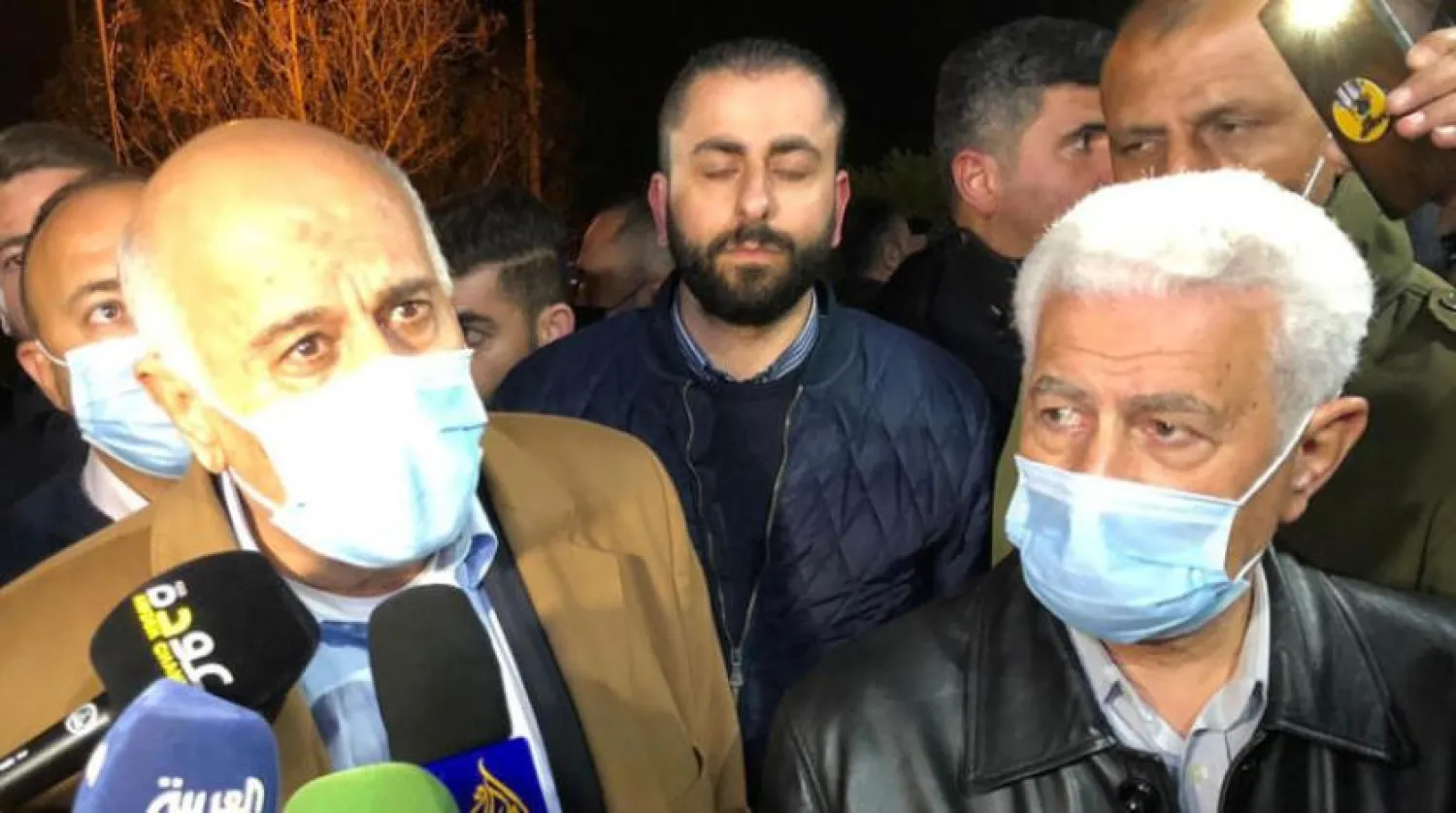The Fatah movement kicked off its electoral campaign by calling on its supporters to reject the “defectors”, in its first clear and direct comment on the alliances made by current and former leaders in the movement.
Fatah member, Jibril Rajoub asserted that the movement is united, urging supporters to ignore the defectors, a reference to the electoral alliance between jailed leader Marwan al-Barghouti and Nasser al-Qidwa.
Barghouti is directly challenging the movement in his alliance with Qidwa on a list that doesn’t include him, amid speculation that he intends to run in the presidential elections against Palestinian President and Fatah leader Mahmoud Abbas.
A source in the movement told Asharq Al-Awsat that dealing with Barghouti will most likely be different than Qidwa, and that the leadership is being cautious before taking any decision.
He explained that Barghouti is a detainee and strongly supported, noting there will be high-level meetings to discuss the issue.
“The movement has always supported him, and it is not easy now to change the discourse. The movement will wait and is not worried about the other lists.”
Fatah has prepared well for the polls, bringing in five members of the Central Committee. The list is led by Abbas's deputy, Mahmoud al-Aloul, and includes Rajoub, Ahmed Helles, Dalal Salameh and Rouhi Fattouh, making Fatah the only faction with a list of top leaders.
The Central Elections Commissions (CEC) announced that 36 electoral lists have submitted applications for nomination. Names of the approved lists and the candidates will be made public next Tuesday. They have until April 29 to withdraw from the race.
Among the lists that were registered alongside Fatah and Hamas are the Barghouti-Qidwa alliance, the list of ousted Fatah leader Mohammad Dahlan, other alliances, and a number of independent lists.
Legislative elections are set for May 22, but sources have been skeptical, believing they may be postponed or canceled.
Sources in Israel and Hamas believe Abbas may postpone them due to what they described as “division within Fatah” along with the United States’ ambiguous position.
In addition, a number of regional countries and Israel are worried about the possibility of Hamas winning in the elections.
However, Israeli security sources warned that if Abbas decides to cancel the polls at the last minute, this could lead to a wave of protests throughout the West Bank.
Israeli officers said that the state of alert among Israeli forces in the West Bank has been raised, warning that the army will be ready for any unrest.
Israeli journalist, Ehud Yaari, said that Abbas is aware it was a mistake to announce the elections and allow Hamas to participate, despite the warnings of the head of Shin Bet, Nadav Argaman. He believes Fatah has low chances of winning.
During a meeting described as “tense”, Argaman asked Abbas to cancel the elections, but the latter refused.
Kan reported that Argaman told the Palestinian president that he can’t hold the elections with Hamas, to which Abbas responded: “I don’t work for you.”
Argaman warned that the elections could bring Hamas to power, to which Abbas responded: “Who built Hamas? You [Israelis] built Hamas.”
Argaman also threatened that Israel would file its own complaint to the International Criminal Court against the Palestinian Authority. Abbas responded: “As far as I’m concerned, you and I can sit together in the same prison cell.”
The Shin Bet declined to comment on the report, but Israeli officials said the wording and tone of the quotes weren’t necessarily accurate, adding that it may have been convenient for the Palestinians to present the meeting in this way to prop up Abbas’ political image.









